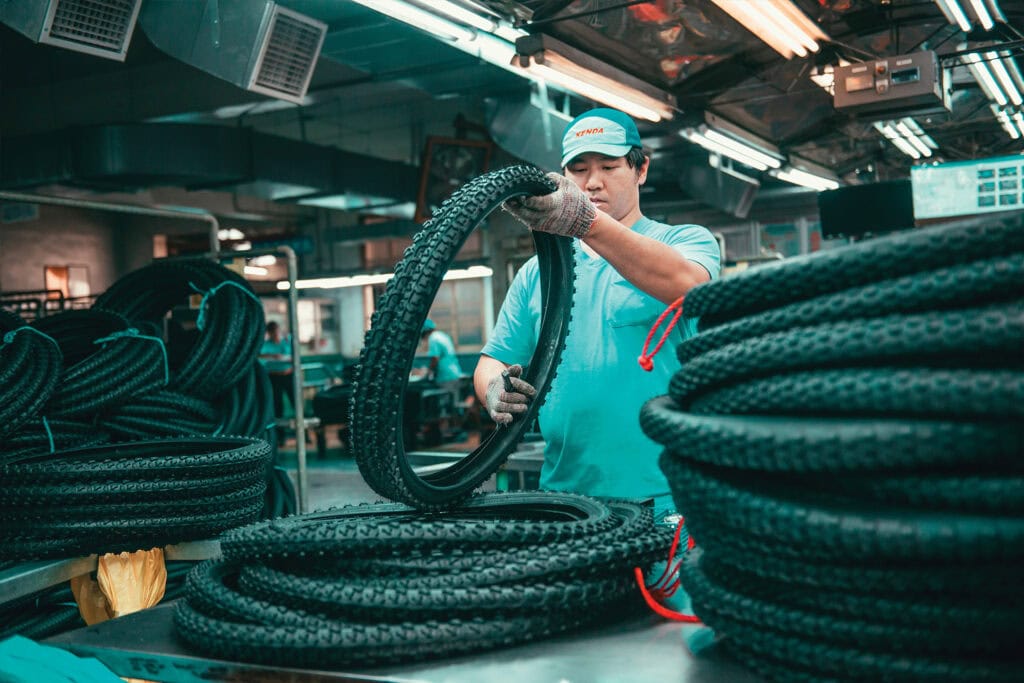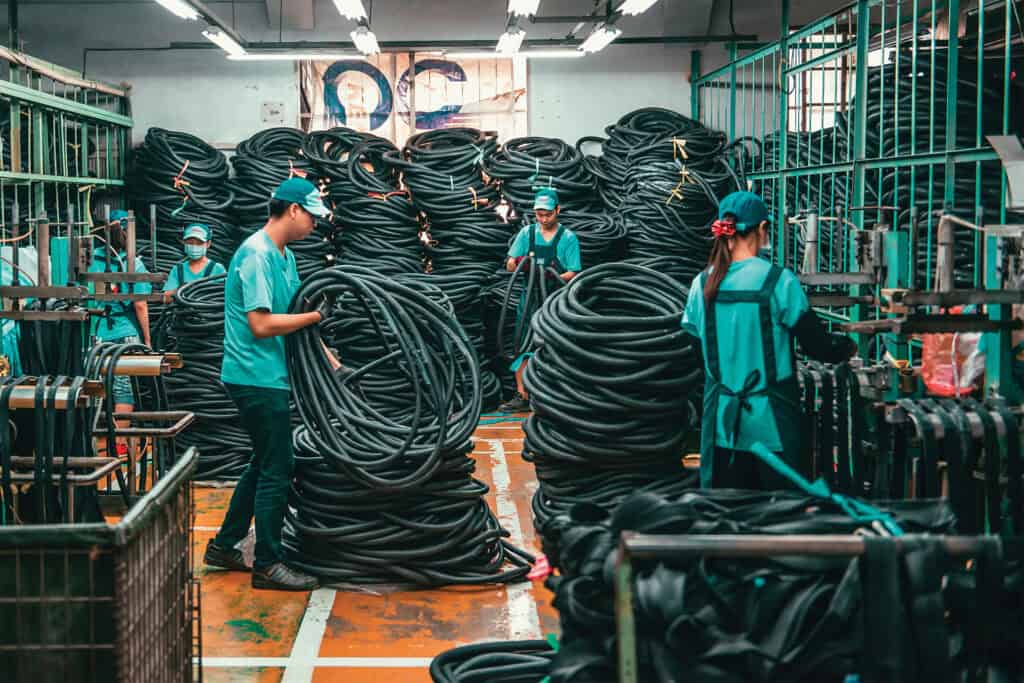For more than six decades, Kenda Tires has been a key player in the tire industry. With a focus on core products and strategic expansion, the Taiwanese company is now positioning itself for long-term growth.

If you look at the Taiwanese bicycle tire industry, one name cannot be ignored: Kenda Tires. Founded in 1962 in Yuanlin, the company began as a small manufacturer of rubber products, including bicycle tires and tubes. Over time, it expanded into a multinational operation, producing not only bicycle tires but also products for the automotive, industrial and power sports sectors. Today, Kenda operates multiple factories across Taiwan, China, Vietnam, and Indonesia, employing more than 13,000 people worldwide. With annual revenues exceeding US$1b, the company continues to adapt to shifting industry trends.
“My grandfather left his former employer to start Kenda in the early 1960s with a focus on small rubber products, including bicycle tires and tubes,” explains Eric Yang. He is Vice President of Business Development at the Kenda office in San Francisco and, accordingly, has a close eye on current developments in the global tire market. “Even though we’ve expanded significantly since then, the bicycle business remains the heart and soul of our company,” he adds, noting that the bicycle division accounts for roughly a third of Kenda’s business activities.

That bicycle division is naturally in the spotlight for the Taiwanese tire manufacturer at this year’s Taipei Cycle Show. Like many companies in the bicycle sector, Kenda has felt the effects of a market slowdown. The post-pandemic correction, combined with overstock issues and reduced consumer demand, has led to lower sales. “Our bicycle business is down a little bit,” Yang acknowledges. “Compared to others, we’ve been able to leverage our success in other industries, especially the automotive sector, to offset some of the losses.”
The European market has been particularly slow, with sales lagging across multiple product categories. However, Yang sees renewed optimism for 2025. “There’s more optimism this year than in years past—at least from what I can see in the North American market. People are seeing signs of a rebound here,” he notes, adding that “sellout and inventory levels have become key success metrics, and most companies seem to be in a better position now.” In times of ongoing uncertainty in the bicycle industry, this is a positive outlook.
Therefore, Yang remains confident in what lies ahead for several reasons. The first one is an adaption of the product portfolio. Lately, the company has focused more on the consumer segment to reach a broader audience. Additionally, a new gravel tire is set to be introduced in the near future, designed to accommodate wider widths. Kenda is also expanding its focus beyond the traditional bicycle market by investing in cargo bike tires, a growing segment driven by increased demand for urban mobility solutions. “Cargo bikes are becoming more important, particularly in Europe, where cities are pushing for more sustainable transport options,” Yang says.

Another prominent project is the topic of sustainability. The tire specialist is part of the Bicycling Alliance for Sustainability (BAS) and has set a target of reducing its CO2 emissions by 3 percent per year. “Our five-to-10-year goal of reducing our carbon footprint remains unchanged, and we continue working toward that,” he explains. “Not only do we have to set up data collection systems, but also conduct regular audits and assessments of our suppliers to gather data on their sustainable practices.”
Today, Kenda finds itself at a pivotal moment. The company’s history as a local manufacturer turned global player is reflected in its strategy—adapting to market trends, expanding product lines, and maintaining a commitment to sustainability. While challenges remain, Kenda’s diversified portfolio and ability to navigate industry fluctuations put it in a strong position for the future. With their new strategy, they reaffirm their long-term vision: a commitment to quality, adaptability, and sustainable growth in an evolving bicycle industry.
Topics in this article
More news and updates from The Show Daily team
- Greenway Battery: A Focus on Product Longevity and Smart Sustainability
- Seven Things to Expect from Eurobike 2025
- Kenda Tires: From Local Manufacturer to Global Player
- E-Bike Motors 2025: Innovation and Competition Drive the Market Forward
- Knowledge, Networks, New Directions: What to Expect from the Eurobike 2025 Specialist Program


